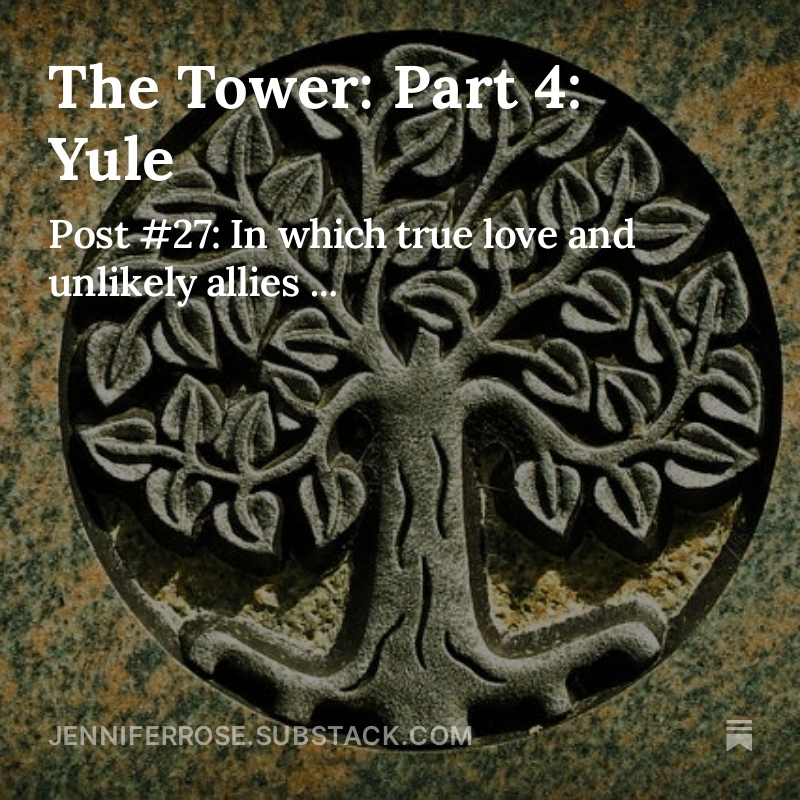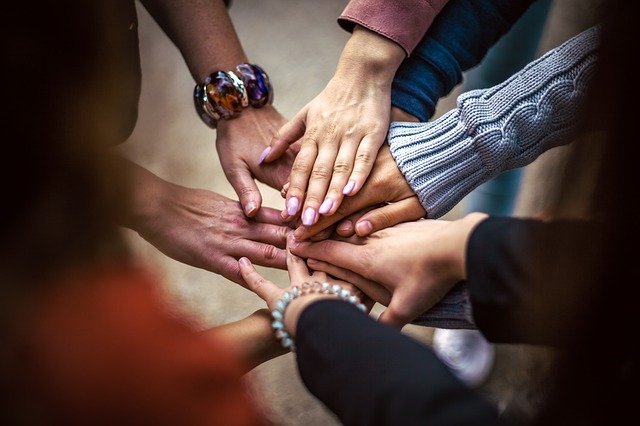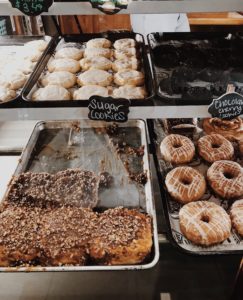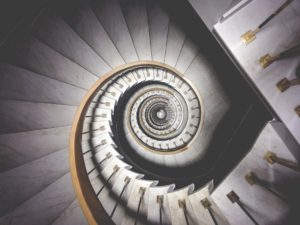Healthy Self, Healthy Community
I received some second-hand feedback regarding my last post that’s had me thinking further about this idea of taking one’s own breath away.
We exist as individuals, and we also exist in relationship to others, and not only with our own species. In fact, as I reread the last statement, I realize it doesn’t quite reflect reality. We think of ourselves as discrete, separate individuals. “I.” “Me.” Yet it would be more accurate to say “we” and “us,” for we are each a world of microorganisms, internally and externally. Without all these bacteria, fungi, and other tiny organisms we couldn’t live. They facilitate everything from our digestion to our skin and mucous membrane health.
The point remains; however, we are each a part of ever-enlarging communities, from micro to macro. Oxford Online Dictionary defines ‘community’ as a group living in the same place or having specific characteristic(s) in common. A second definition is a “feeling of fellowship” with others because of common values, goals, and beliefs.
Community, in other words, is a fundamental human experience and shapes us in myriad ways. We are a social species; we need one another. I’ve been fighting with that reality all my life.
I believe much of our journey in life is about managing the continuum between narcissism (grandiose sense of self-importance, lack of empathy for others, need for excessive admiration, belief that one is deserving of special treatment) and echoism (a fear-driven compulsion to prioritize others’ needs).
That unwieldy balance necessarily takes place within the inescapable context of community.
It’s complicated.
We all know communities vary. Most of us acknowledge being part of several communities. Often our identities are inextricably bound with community membership, in the case of religion or family, for example. These bonds are very strong.
As I think about and participate in communities, I think about health. Am I healthy enough to function effectively and appropriately in my community? Is my community a healthy place for me?
Community is both a mirror and a crucible. Communities formed as social bubbles and echo chambers can be deeply comforting and validating. Everyone is like us. Everyone believes what we believe. We experience no discomfort or friction. We’re assured of our rightness, our clarity, our moral ground. We know the Truth. We never have to reconsider, find out we’re wrong, grow, learn new things, or change. We stand on solid ground and look into mirrors reflecting us exactly as we want to be seen.
Communities formed as crucibles, such as work, volunteer groups or neighborhood groups, are not so comfortable. In these communities we will experience conflict and friction. Everyone does not share our values and beliefs. Because everyone is not the same, we get glimpses of parts of ourselves we’d rather not see or have seen by others. We can’t hide our flaws and weaknesses, mistakes and missteps. We receive various kinds of feedback. We feel defensive, exposed, ashamed.
Crucibles are cradles for alchemy and change. They trigger our old traumas and shames without notice. They bring us face to face with ourselves and relentlessly demonstrate the effect of our behavior on others.
I observe that people who primarily interact in mirror communities are often black and white in their thinking. You’re for us or against us. You’re Us or you’re Them.
This kind of thinking strikes me as silly and unintelligent. The older I get, the more shades of grey I discover. Accepting shades of grey, however, is a lot more interpersonal and personal work than black or white labels. Shades of grey mean we have to think carefully about what we value and believe and why. We might have to defend our views. We might ask or be asked uncomfortable questions. Others might become annoyed, offended, or hurt by our position. People might try to make us small and silent, or fit us into a box so they can feel more comfortable with us.
We might let them.
I have often let them. And that’s about my own health. Healthy crucible communities empower rather than disempower; empowerment brings responsibility. A responsibility to be the healthiest and most whole person I can be. A responsibility to practice tolerance and respect towards myself and everyone around me. That means I’m responsible for my boundaries, my integrity, and my resilience.
The health of individuals in the community directly correlates to the health of the community itself; I don’t want to be the limiting factor in any community I’m a part of.
Striving for increased health and wholeness is a practice rather than a destination. Some days I feel like a shattered mess that can never be mended or healed. Other days I feel like a good-enough person, or maybe even a little better than that. I care about the people around me. My challenge is to care about myself equally, to hold my needs as important as those of others, to attend to my own well-being before becoming absorbed in caring for others. I don’t believe this makes me a narcissist, but it does move me away from echoism. People who view my behavior as narcissistic have perhaps benefited from those who, like me, have poured themselves out into others with no thought or responsibility for themselves.
I am fortunate to have a true healthy community; the first I’ve ever participated in with any degree of authenticity and vulnerability. My greatest fears have been realized, more than once. I am seen a great deal more clearly than I wish to be. I am cared about, a very uncomfortable state of affairs. When I make mistakes or my judgment is poor, everyone sees, everyone knows, and it feels disastrous. I am frequently uncomfortable because some of my belief systems and lifestyle choices are different from those around me.
The same is true for everyone in my community. We see each other, and we make room for each other with affection, humor, and occasional irritation that only underlines our caring.
I’m not embedded in a mirror, but in a crucible, and I wouldn’t choose differently. As uncomfortable (terrifying) and messy and even humiliating as it sometimes is, my interaction in my community is making me a better person in every possible way; I see myself in a community context in ways I never would alone or in a mirror community. My community expands my humility, forces me to become more resilient, pushes my boundaries, and teaches me that what really matters is friendship and respect, not lifestyle choices and differing belief systems.
Every day I take things I’ve learned in my community and turn them over, sometimes cry over them, figure out how to grow and change and be more effective. I do it for me … and for them. I do it because it’s a challenge, it’s fascinating, it’s growthful, and I don’t want to be part of a mirror community. I like diversity, as uncomfortable as it can be. Diversity makes me bigger and wiser.
The phrase “the public eye” is so amorphous as to be useless. I’m not concerned with what the stranger on the street thinks of me, if indeed they spare a thought for me at all. But I do care what my community thinks of me, because I know I’m valued for myself, imperfect and weird as I am. I trust them enough to allow them to help me grow. I don’t feel pressured to be like any one of them; rather the pressure is to be the best version of myself possible, which is exactly what I want for them.
The best versions of myself take my own breath away now and then, the root of my last post.
Healthy community is absolutely essential for all of us, in my view. So is the ability to self-reflect and accept ourselves with love and grace. I want to respond to those around me with tolerance and respect, and I learn to do that best as I practice tolerance and respect with myself. As I see myself more clearly and kindly, I see others more clearly and kindly. As I foster my own growth and change, I can better foster the growth and change of those around me.
Healthy communities depend on healthy individuals, or at least communities committed to health need individuals committed to their own health. That’s what works. Neither echoism nor narcissism build health or growth of any kind for anyone.
Questions:
- Name three communities you feel a part of. Is each one more of a mirror or a crucible?
- Which of your communities feels most healthy? Least healthy?
- What do you find hardest about being in community?
Leave a comment below!
To read my fiction, serially published free every week, go here: 






